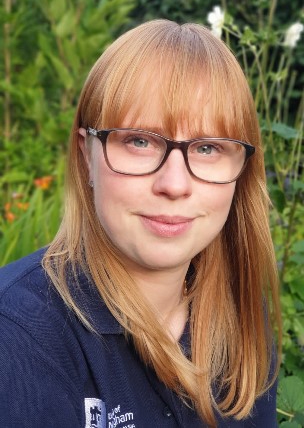The power of collaboration: working together to tackle AMR
The Medical Research Foundation is training the next generation of researchers to explore ways of tackling antimicrobial resistance (AMR), one of the greatest emerging threats to human health.
In August, our National PhD Training Programme in AMR Research, led by the University of Bristol, brought together 54 PhD students from across the UK for a residential training course, as part of its second annual conference and interdisciplinary AMR training week.
Here, six of the students reflect on crossing traditional boundaries between research disciplines and sectors, and they consider the potential of an emerging, alternative approach to antimicrobial therapies.
It is important that the development of treatment alternatives lies not only on the desks of immunologists, but with all experts in science, engineering, medicine and social science.
The rain pelts down outside as the six of us - an environmental scientist, computer scientist, public health specialist, microbiologist, epidemiologist and physicist - sit around a table discussing the problem that unites us: how are we going to prevent 10 million deaths globally due to antimicrobial resistant (AMR) infections by 2050? To put that in perspective, at some point within the next 30 years you will be more likely to die from an untreatable infection than from cancer.
We attended a workshop on alternatives to antibiotics, which introduced us to an exciting area of science that is unfamiliar to us all - immunotherapy. Instead of combating these bugs with drugs, why not harness our immune system to fight them better for us? We are all born with an immune system, which has co-existed alongside microbes for generations preceding us and ensured the survival of the human race before drugs ever existed.
Interestingly, immunotherapy has been explored as a treatment option since 1891, even prior to the discovery of penicillin in 1928. Subsequent drug discovery shifted focus away from immunotherapy research and marked a new chapter for medicine in reducing deaths from infectious disease, yet microbes have evolved resistance to every type of drug faster than we have created them. There has been little incentive for pharmaceutical companies to develop new ones, even less so now that we are moving to reduce our use, hence the need to explore alternate treatments.
Tailormade immunotherapy treatments have already revolutionised cancer treatments. Removing and reprogramming white blood cells to attack invasive cancer cells has successfully extended the lives of terminally ill blood cancer patients, all without suppressing their innate immune response as chemotherapy does. Could a similar treatment tackle AMR?
In the case of fighting bacterial diseases, immunotherapy has several potential advantages. It can either dial up the immune system if it is too weak to protect the body, or dial down the immune system if it is too strong and could damage the body. It is particularly beneficial to prevent extreme inflammation and organ damage in patients whose bodies have responded excessively. Unlike antimicrobial treatments, immunotherapy slows down the development of AMR because it will be targeted only at the site of, and during, active infection giving the microbe less time to adapt. Antimicrobials also wipe out good as well as bad bacteria, which reduces your body’s natural defence against further infections.
The way each person’s body responds to infection is different so immunotherapy needs to be tailored to each individual rather than a ‘one-size-fits-all’ approach. We still need to fully understand how our immune system acts in defence against infections and how inflammation is controlled.
On balance, we all believe immunotherapy is a promising alternative to antimicrobials as part of a combined approach to reducing AMR. It is important that the development of treatment alternatives lies not only on the desks of immunologists, but with all experts in science, engineering, medicine and social science. Workshops like this are valuable opportunities for researchers like us to solve complex problems in AMR by forming well-coordinated collaborations. The unfolding AMR situation could be an apocalypse or an opportunity- it’s up to us all to decide.
'Alternatives to Antibiotics' was one of three training themes focused on during the residential training course, and was led by Prof David Dockrell, Centre for Inflammation Research at the University of Edinburgh.
Authors

Oluwashina Akinsanmi, Ulster University
Environmental science PhD researcher studying the removal of antibiotic residues and antibiotic resistant bacteria from wastewater using lignocellulosic waste materials.

Victoria Carr, King's College London
Computer science PhD student working on understanding the spread of antimicrobial resistance across microbes.

Nidhee Jadeja, Imperial College London
Public health PhD student examining policies to address AMR in low- and middle-income countries.

Hayley Marshall, University of Nottingham
Molecular microbiology PhD student working to optimise the use of footbathing for the prevention of lameness in sheep.

Jennifer Shelton, Imperial College London and the Centre for Ecology & Hydrology
Microbiology PhD student studying azole-resistant Aspergillus fumigatus fungal spores in the environment.

Ellen Young, University of Edinburgh
Physics PhD researcher working on models of bacterial biofilms.